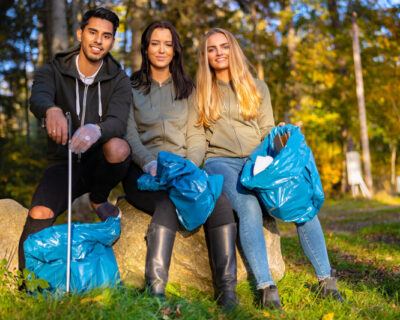Articles
Plastic Industry Combats Litter
THE PROBLEM IS THE LITTER, NOT THE PLASTIC!
Malaysians need a total mindset change to delve into the root of a matter instead of simply dealing with the symptoms. Calling for the ban on the use of plastic without truly understanding the actual cause of plastic pollution is a classic case in point.
Studies show that the ban on plastic bags could be more detrimental to the environment as the alternatives have higher global warming potential (GWP) values. In order to match the GWP value of a single plastic bag, a starch-based bag needs to be reused four times; a paper bag reused five times, while jute needs a staggering 173 times of reuse.
Our wasteful usage of single-use plastics accompanied by poor waste management is wreaking havoc in the environment. Plastic should be properly disposed of, or better still, recycled and recovered as a valuable resource.
Littering is one of the main reasons for plastics ending up in the environment and harming wildlife which mistake plastics litter for food. For example, sea turtles have mistaken plastic bags littered by beach goers for one of their food sources, jellyfish.
Litter does not consist of just plastics, but paper, cigarette butts, bottle caps, drink cans, and even discarded household appliances. Litter not only pollutes but affects property values. It also clogs drains and causes flash floods, which cause traffic jams or damage to property.
As environmental group Ocean Conservancy which initiated the annual International Coastal Clean-up movement puts it, “Trash doesn’t fall from the sky, it falls from human hands. And human hands have the power to stop it.”
To address the environmental harm caused by littering, the Malaysian Plastics Forum (MPF) as part of its corporate social responsibility, launched the “Don’t be a Litterbug” campaign in 2012. The campaign is aimed at preventing plastics from entering the environment and fighting the littering habit among Malaysians.
The MPF was established in 2005 to form a single industry body that consists of two industry associations – namely the Malaysian Petrochemicals Association-Plastics Resins Producers Group (MPA-PRPG) and the Malaysian Plastics Manufacturers Association (MPMA). MPF’s main objectives are to create awareness and education on plastics and to drive the industry’s 3Rs: Reduce, Reuse, Recycle campaign.
The “Don’t be a Litterbug” Campaign is also on Facebook (https://www.facebook.com/DontbeaLitterbug), where Malaysians can follow the anti-litter activities and contribute towards fighting litter. MPF is hoping that the power of online social media will help spread the message, especially to younger Malaysians. It is also in discussions with environmental groups on ways to collaborate to raise awareness on the pollution caused by litterbugs.
Aside from proper trash disposal, MPF believes that the enforcement of stiffer penalties for littering will effectively to reduce harm to the environment. As part of the campaign, MPMA has reached out to schoolchildren as the first step to spreading the message that littering is a bad habit.
Littering affects all of us, and we must work together to fight it to preserve our environment and ensure our well-being.

